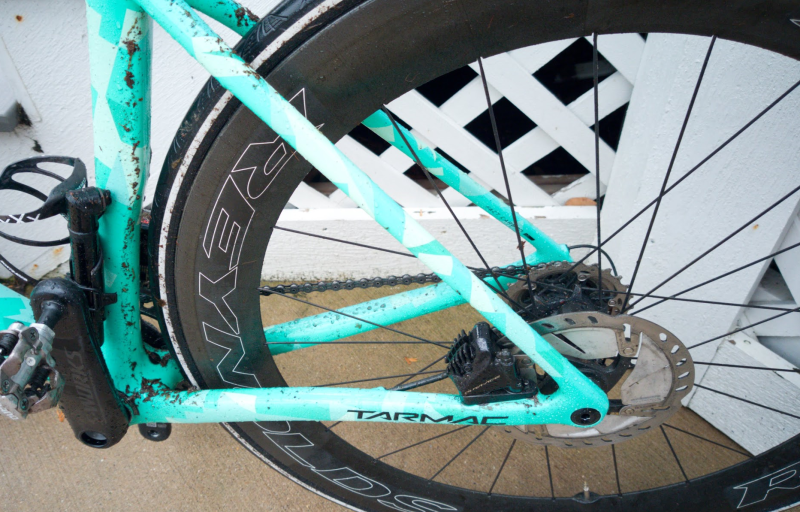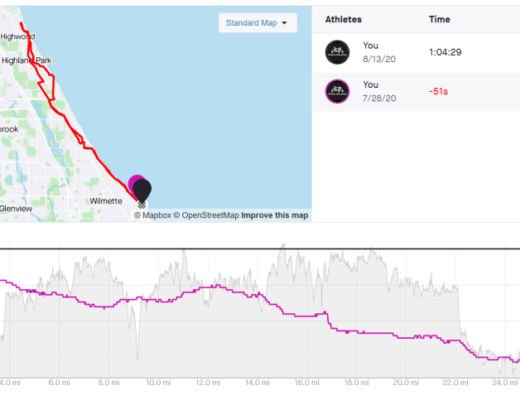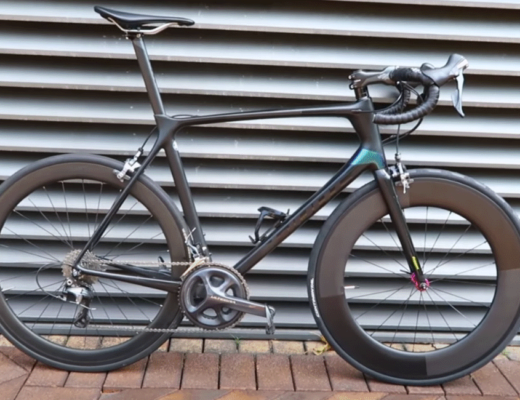Deep down we all know that disc brakes are technically superior. Now, there are rough edges in the current implementation, certainly for road disc, but that doesn’t change the fundamentals.
- There are plenty of use cases where rim brakes are just as good, but disc allows you to plan for peak. For e.g. I live in a flat place, but also like to travel to the mountains with my bike. Disc is unnecessary for 90% of my riding (assuming it’s not wet), but the additional weight doesn’t hurt that much on a flat road, and it wouldn’t make sense to have another bike just for traveling.
- Road disc is heavier, but it’s not massively heavier, on my main road bike the penalty is 310g. I carry 2kg of water with me on a long ride because I don’t want to get dehydrated. 200-400g of carbs because I don’t want to bonk. Put 692.5g of optional accessories (bike computer, tail lamp, CO2, tubes, etc) on the bike because I want to track my ride, be seen, and not have to walk home. Wear a 287g helmet because I don’t want a concision (or die) if I crash, and ~1500g of clothing because I’d rather not go to jail (and frankly it’s more comfortable for everyone ;)). 310g more weight in the bike, and 7W (worst case) more drag seems a small penalty to get better braking in all conditions.
- I don’t set out to ride my main road bike in the wet (that’s what the cheaper disc brake fender bike is for), but I’ve definitely gotten caught out in it. It’s nice to have the consistent braking performance that disc brakes provide no matter what the weather throws at you. Similar to point 1, but applies to those who never leave the flats too.
- Road disc wheels aren’t that much heavier than their rim counterpart. For e.g. the rim version of my main road wheelset is 10g (claimed) less than the disc version. As rims are redesigned for disc application only, disc specific rims are becoming lighter than their rim brake counterparts (i.e. the additional material necessary for a rim brake isn’t required anymore). Reducing rotational weight further from the hub, even if the hub is heavier, and you need an additional spoke, should make for a more efficient total system.
- Rim brake wheels are a consumable (especially when riding in bad weather), disc brake rotors are a consumable. Which is cheaper?
- OEMs are pivoting to disc. This might not be popular, but it is true. R&D $ for them, and the aftermarket is going that way too.
TBC, I’m not trying to say that disc is for everyone. It’s not. If you’re happy with your bike, there’s no reason to swap it out. There are even plenty of reasons to buy, or stick with a rim brake bike, besides inertia (like a great deal as OEMs pivot to disc), but we should be honest with ourselves about the why.



